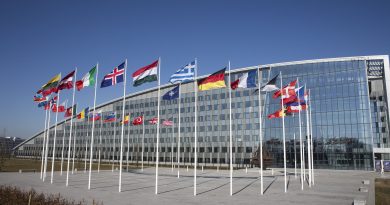FOCUS on International Response to Israel-Hamas War: Russia
Catherine Anderson
Staff Writer
Russia’s response to the Israel-Hamas conflict is perhaps best characterized as a “balancing act,” as it must account for its ties with Hamas, its ties with Israel, and its broader geopolitical interests in the Middle East.
Though Russia did not have direct diplomatic relations with Hamas until the 2006 election, as the Observer Research Foundation writes, the historic precedent for this relationship dates back to the Cold War. During this time, Russia supported several Palestinian militant groups, including those who “engaged in terrorism,” reports the Carnegie Endowment for International Peace. Even outside of these groups and Hamas, Russia has a complicated history with terrorism. As the Carnegie Endowment for International Peace writes, the Kremlin claims to take a “hard stance” on terrorism. However, even though it aided the United States after 9/11 and claimed to be fighting terrorism when it intervened in Syria in 2015, it has also either ignored or worked directly with numerous terrorist organizations. It has diplomatic relations with the Taliban, for example, in Afghanistan. It is also important to note that while the Kremlin has not designated Hamas as a terrorist organization, it has designated certain political opposition as terrorists, such as Alexei Navalny.
Even after its October 7 attack on Israel, Russia has not changed its relationship with Hamas. It has not condemned Hamas; instead, it blames the United States. The Carnegie Endowment reports that Putin called the war a “vivid example” of the failure of U.S. policy in the Middle East. However, despite its condemnation of the U.S., which is one of Israel’s key allies, and its relationship with Hamas, Russia has also tried to maintain a relationship with Israel.
Russia’s ties with Israel, reports The Associated Press, were strengthened following the breakup of the Soviet Union. However, the Russian invasion of Ukraine posed a major test for the relationship. Israel struck a balance in its response, providing vocal but not material support for Ukraine and angering many of its Western allies. Putin, however, praised Israel’s “mediation efforts,” reports the Associated Press.
Tensions seemed to rise between the two states again when a mob of Russian citizens stormed passengers on a flight that had just arrived from Tel Aviv. The riot took place in an airport in Dagestan, writes BBC News. Dagestan is a Russian Republic in North Caucasus whose population is primarily Muslim; it has, however, a significant Jewish population that dates back to pre-Islamic times. Dagestan’s government expressed sympathy for the citizens of Gaza, but urged its population not to partake in such actions. In response to the event, Israel called on Russia to take more measures to protect its Jewish citizens, writes BBC News.
As it navigates this situation, and its response to the Israel-Hamas conflict, Russia is engaged in a delicate balancing act, as it attempts to maintain its relationship with both sides of the conflict. Its motivation for doing so seems to be a desire to cement itself as a mediating force in the region. This is demonstrated in part by the resolution it presented to the United Nations Security Council. The resolution, which failed, did not condemn the attacks by Hamas, but instead called for a “humanitarian ceasefire,” writes ABC News. It also, reports Reuters, is using the conflict as an opportunity to cement itself as a champion of the developing world and a friend of the Global South.
The U.S., continues Reuters, has sided with Israel. As mentioned previously, Russia has already blamed U.S. policy for the war. By allying itself with Palestinians, it can make itself seem like an ally of the developing world. Additionally, Russia seems to be trying to bolster its image as a mediating force. By emphasizing the negative role of the U.S. in the conflict, it can enhance its own image. Further, by emphasizing the U.S. as a driver of the conflict, it can hurt Washington’s efforts to garner sympathy for Ukraine within the Global South. While some have argued that chaos in the region benefits Russia by taking eyes away from the Ukrainian war, Russia itself does not hold this view.
As the Carnegie Endowment for International Peace writes, in the Russian view, the Middle East is not actually geographically very far away. Chaos in the region presents a security risk for Russia, which has been the target of terrorism in the past. It is in its own domestic interest, then, to avoid chaos and search for a peaceful solution.


